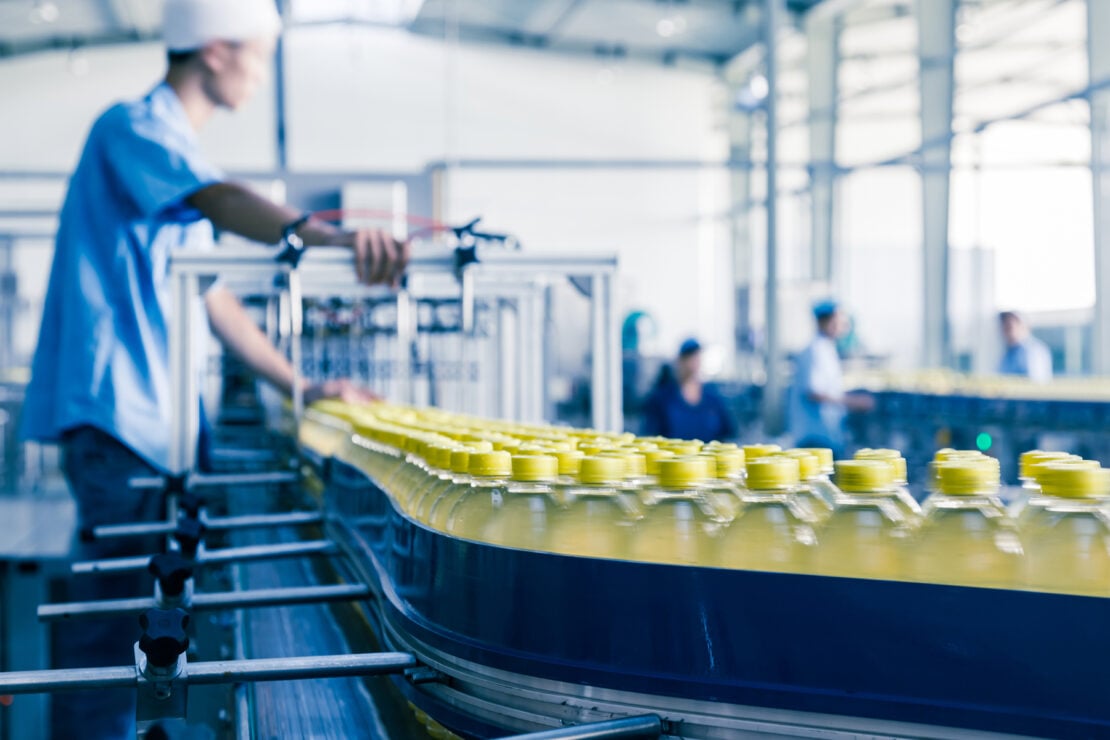
‘Going to Gemba’ helps accelerate product and process innovation
June 2021
By Adrian Swinburne, Head of Consumer

42 Technology is regularly asked by FMCG brand owners to help develop new manufacturing processes or to improve existing product development strategy.
For example, to enable the manufacture of new product variants. Or to accommodate changes to product recipes or new materials that can introduce unexpected challenges to existing production lines.
But these projects often come with one major restriction: that any new processes proposed should involve minimal changes to the company’s existing high-value manufacturing assets. Although at first glance this might seem to be an almost insurmountable barrier to innovation, in reality it can be transformed into a highly potent catalyst for the innovation process.
In a previously published article (see below) Adrian Swinburne shared insights on why Gemba walks are an essential first step when starting out on any asset-constrained innovation programme.
Why there is a need
- Properly understand existing asset performance and capabilities
- Understand how specific product ingredients influence the design and operation of manufacturing assets
- Explore degrees of freedom and options for process changes with associated costs
- Understand how assets have evolved over the years, and most importantly why
- Establish empathy and shared vision with the engineering teams. This is so they become an integral part of the innovation team, not isolated from it
One outcome of considering manufacturing assets in this way is that any new concepts or process improvements are much more likely to make it all the way. They will be supported from the start by the brand owner’s marketing group and the engineering team in the factory. Also, its existing equipment suppliers.
Making it work in the real world
For example, in one project, 42 Technology worked closely with the manufacturer of a client’s existing process development and their equipment. A theoretical model of how it could be improved to reduce processing times was created.
Following successful simulation, the supplier was able to evolve its existing equipment design to deliver a significant increase in production throughput rather than completely re-designing it from the start.
See article: Step By Step - Manufacturing Management
If you’d like to discuss the article or need specific advice on your product development or process development, then please email answers@42t.com.
Share this article:
Related Articles

Manufacturing & Automation, Industrial
How to bring sensing in manufacturing out of the lab and onto the line

Manufacturing & Automation
Digitalisation in manufacturing - building on the foundations of good data

Manufacturing & Automation
Food & beverage industry - trends to be aware of in 2024

What will you ask us today?
We believe in asking the right questions to drive innovation; when we know the right questions, we generate the ideas to answer them.

